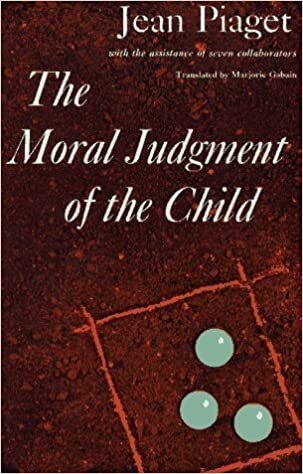Legos and Logos: Jean Piaget and Autonomous Morality
We live in a society under, and to a certain extent dedicated, to rules and parameters. This being so, we often forget the need for organic and authentic learning. Jean Piaget examined and discovered that children are “Tiny Scientists,” constantly searching for the freedom to explore and learn through experience rather than regurgitation. In his book “The Moral Judgement of the Child,” Piaget postulates that
“Motor intelligence contains the germs of completed reason. But it gives promise of more than reason pure and simple. From the moral as from the intellectual point of view, the child is born neither good nor bad, but master of his destiny.” Clearly, the Buddha himself would have been proud of Piaget’s ability to snag the meaning of life through the examination of early learning: What thou enjoys, thou learns faster, and what thou enjoys is learning without judgment.”
Uniforms, outdated textbooks, sitting in chairs for hours at end, and lecturing from teachers either unwilling or unable to create unique lesson plans: this is the unfortunate predicament of most educational institutions, especially when we take into account Early Childhood Development. No wonder children continue to be diagnosed with an array of learning disabilities and anxiety disorders. Perhaps we should let everyone out of the cage and halt the production of genetically modified curriculums and classrooms.
Or perhaps we can consider the opposite. Rather than placing the blame on educators, parents, and outdated methodologies, let’s consider solutions for the “precariat” through a re-education of America. For example, how many citizens actually know, nonetheless practice, the Socratic method of discourse and dialogue? Piaget almost certainly did, as he formulated that students desired “autonomy” to discover, having positive experiences within their communities. The effective utilization of the Socratic method consists of engaged citizens willing to listen, experience, and contributing to solutions and evident truths voted upon by the informed masses. Consequently, engaged citizens devour these truths, digest them, and when finally synthesized, these “truths” turn into a protein that feeds the masses’ need for the meat of more discourse, and, thus, real progress for humanity.
But right now,, we adhere to emotional and angled fisheries in which the biggest fish caught validates the fisherman’s prowess. This state of affairs reveals a key point at which a re-education of America can fire.
Children learn by doing.
There is hope, and this hope permeates within the natural inquisitive and curious souls that we all possess from day 1. What do newborns do after they are shot out of the womb? They cry and gasp for air after the plastic hand of the doctor or nurse slaps the baby on the back enabling it to breathe and explore. The eyes open and children begin to observe their surroundings. Eventually, cries turn into smiles, embracing their mothers while vetting their environment. Children are “tiny scientists” from birth, constantly going through messy experiences of trial and error.
Hope also lies within the unfortunately fortunate opportunity presented during the current pandemic. The distance learning experiment will undoubtedly force us as a society to reexamine the enabling and inability of effective learning viewing technology as an end rather than a tool of in the process of learning. In other words, Artificial Intelligence does not and never will substitute for experiential learning. But again, undoubtedly, technological platforms enhance learning solutions.
Ironically, I write to you from one of these platforms, and without it, the introduction of initial solutions may prove to be more difficult. However, Dewey would embrace this fortuitous and unique time as he believed that “luck, bad if not good, will always be with us. But it has a way of favoring the intelligent and showing its back to the stupid.” What if parents mustered the courage to stop this comical and ultimately ineffective bandage of distance learning, and instead, provided legos and a pen and paper.. Let the children, teachers, and parents embrace this time as one where we can encourage theorize the notion of and try to be “Tiny Scientists,” as we remaster the age-old debate of the stoics. Fortune is here for us to grab, and we are lucky to reinstate the moral perceptions of students through the joy of plain, old fashioned experimentation.
We all learn by doing, and we are all “Tiny Scientists”
This piece is a part of a new series we are beginning, “Education and Society.” Stay tuned for further details.

